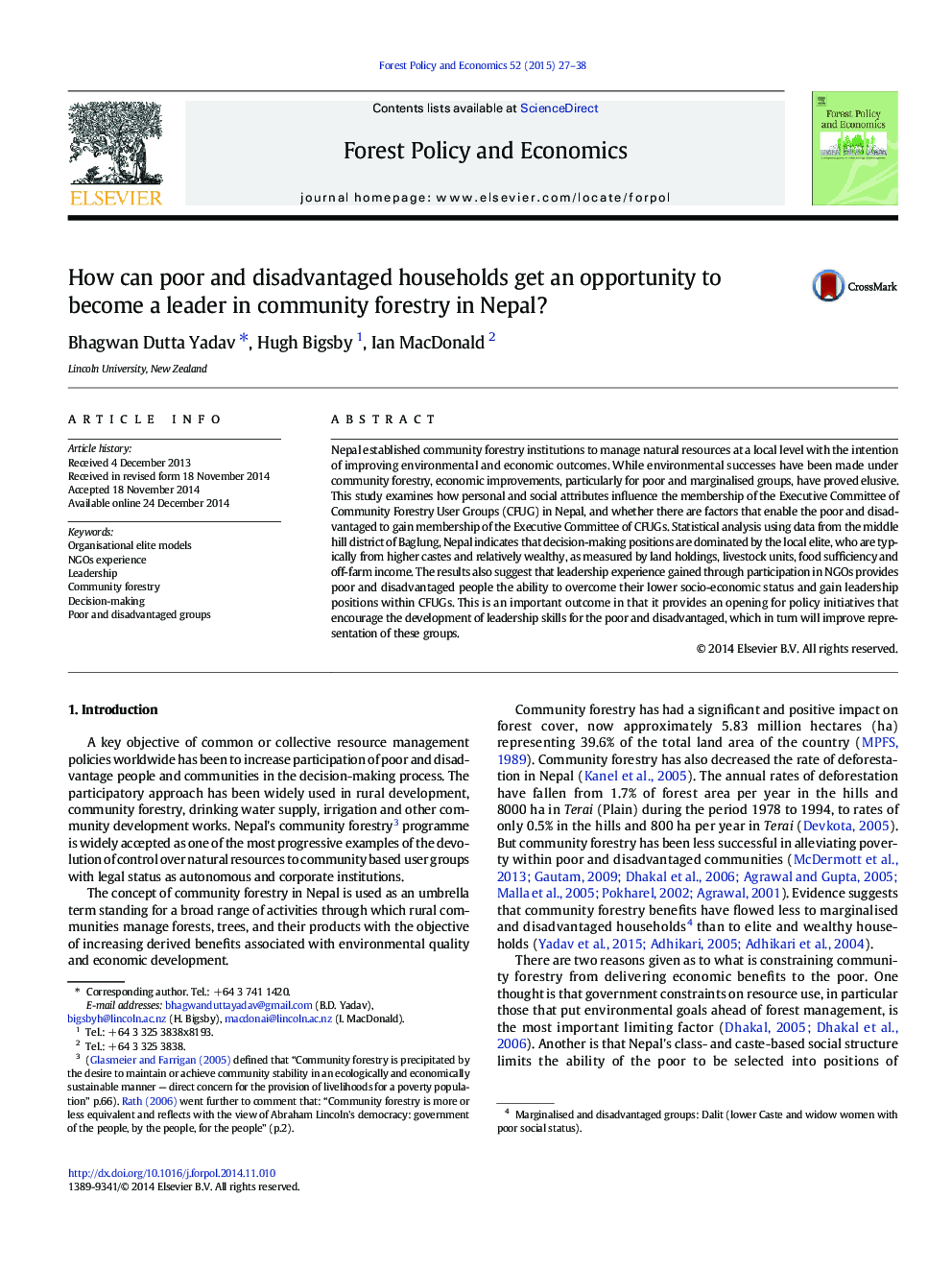| کد مقاله | کد نشریه | سال انتشار | مقاله انگلیسی | نسخه تمام متن |
|---|---|---|---|---|
| 91350 | 159786 | 2015 | 12 صفحه PDF | دانلود رایگان |
• Households with leadership training are more likely to take leadership role.
• The rich with relatively higher wealth attribute more likely to dominate the leadership.
• The organisational elite models provide an opportunity to the poor to become leader.
• EC organisations provide a power to the poor and make balance with traditional elite.
• Higher shares of the poor and disadvantaged leaders on EC make decision on their favour.
Nepal established community forestry institutions to manage natural resources at a local level with the intention of improving environmental and economic outcomes. While environmental successes have been made under community forestry, economic improvements, particularly for poor and marginalised groups, have proved elusive. This study examines how personal and social attributes influence the membership of the Executive Committee of Community Forestry User Groups (CFUG) in Nepal, and whether there are factors that enable the poor and disadvantaged to gain membership of the Executive Committee of CFUGs. Statistical analysis using data from the middle hill district of Baglung, Nepal indicates that decision-making positions are dominated by the local elite, who are typically from higher castes and relatively wealthy, as measured by land holdings, livestock units, food sufficiency and off-farm income. The results also suggest that leadership experience gained through participation in NGOs provides poor and disadvantaged people the ability to overcome their lower socio-economic status and gain leadership positions within CFUGs. This is an important outcome in that it provides an opening for policy initiatives that encourage the development of leadership skills for the poor and disadvantaged, which in turn will improve representation of these groups.
Journal: Forest Policy and Economics - Volume 52, March 2015, Pages 27–38
